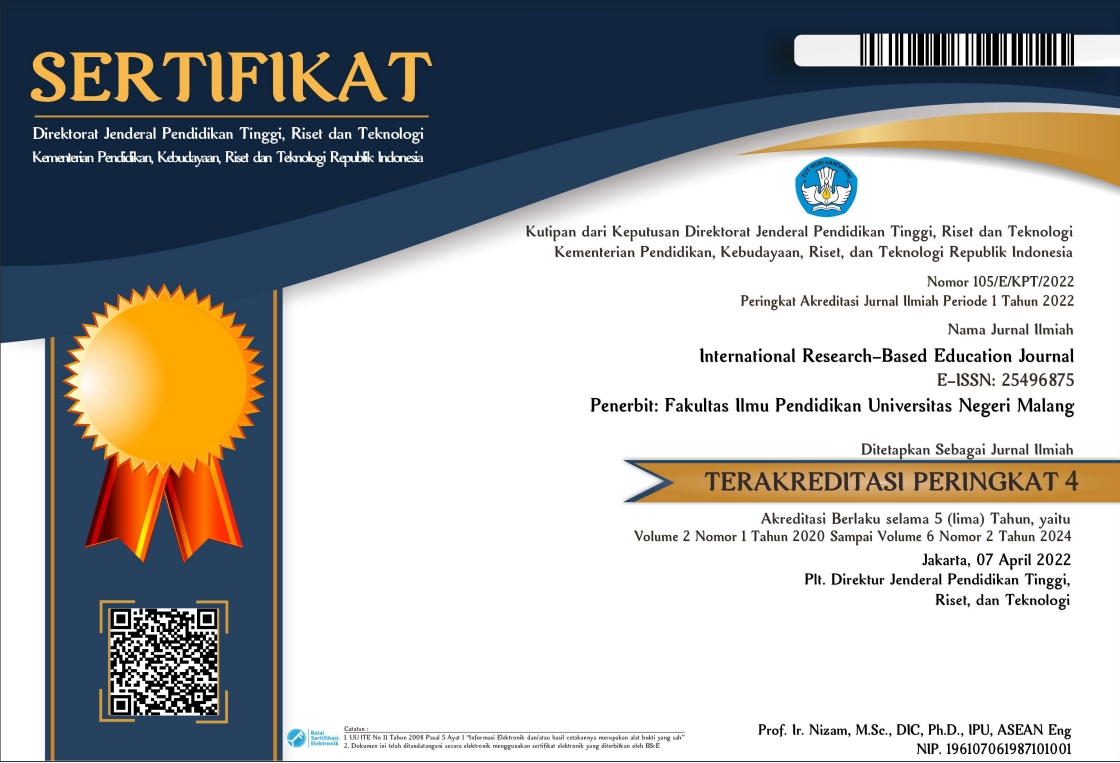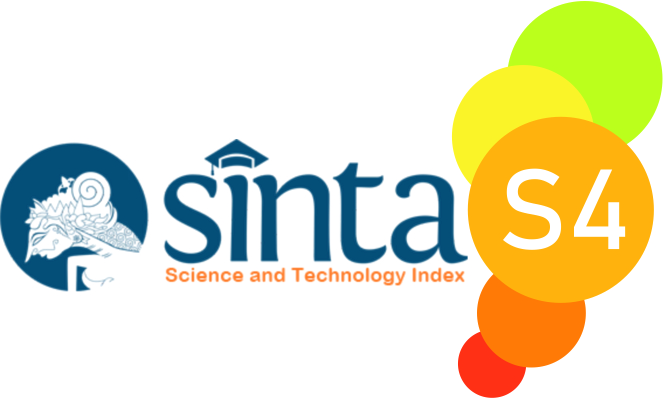The Values of Local Wisdom in Fostering Teacher’s Social Competency At Al-Hilal Islamic Junior Secondary School (MTs) in Tehoru Village, Central Maluku District
Abstract
This study aims to analyze and describe the development of teacher’s social competency based on local wisdom at Al-Hilal Islamic Junior Secondary School in Tehoru Village. The values of local wisdom community in Central Maluku district was integrated in the development of teacher social competence. This study employed the qualitative approach. The data source consisted of primary and secondary data. The data were collected through observation, interview and documentation. The data were analyzed using interactive model of Miles and Huberman.The focuses of this study were: (1) the values of local community wisdom, (2) the integration of the local wisdom values in the development of teacher’s social competence, (3) supporting and inhibiting factors in the development of teacher-based social competence of local wisdom. The study reveals three findings. First, the local wisdom value of the people of Central Maluku is Hidop orang basudara which has philosophical value of ale rasa beta rasa, sagu salempeng pata dua, potong di kuku rasa di daging. The values are implemented in societal life like ;masohi, badati, maano. There are also some belief symbols which is convinced by the society like batu kramat. Second, the values of local wisdom in the development of teacher social competence at Al-Hilal Islamic Junior Secondary School in Tehoru village refer to the values of social attitudes and social systems. The social attitudes are brotherhood, responsibility, mutual caring, and cooperation. Whereas the social system is every activity carried out together. Third, there are three inhibiting factors in the development of teacher social competence: the lack of human resources (HR), both educators and educational staff; lack of facilities and infrastructure, and limited of information. In contrast, there is a supporting factor in the development of teacher social competence, namely: the role of community to have active participation regarding the progress of education quality.
Keywords: local wisdom, teacher’s social competence
Keywords
Full Text:
PDFReferences
Sutirah, (2014). Kepemimpinan Kepala Sekolah Dalam Meningkatkan Kompetensi Guru Sekolah Dasar (Studi Multi Kasus di SDI Surya Buana dan SDN Tlogomas 2 kota Malang). Tesis tidak diterbitkan. Malang: Pascasarjana Universitas Negeri Malang.
Parves, M. & Shakir, M, (2013), Attitudes of Prospective Teachers towards Teaching Profession,Journal of Education and Practice, (Online), 4 (10): 172-178, www.iiste.org, diakses 10 Desember 2017.
Wakano, A. Watloliy, A. Tawainella, N. Salatalohi, F. Ufi, A. J. (2012). Menggali Sejarah dan Kearifan Lokal Maluku. Jakarta: Cahaya Pineleng.
Bafadal, I. (1994). Proses Perubahan di Sekolah: Studi Multi Situs pada Tiga Sekolah Dasar yang Baik di Sumekar.Disertasi tidak dipublikasikan. Malang: PPs IKIP Malang.
Samana. (1994). Profesionalisme Keguruan. Yogyakarta: Kanisius.
Uno, HB. (2012). Profesi Kependidikan, Problem Solusi, dan Reformasi Pendidikan di Indonesia.Cet; IX. Jakarta: Bumi Aksa.
Rivai, V & Murni, S. (2011). Education Management.Jakarta: Rajawali Press
Satori, D. (2010). Profesi Keguruan. Jakarta: Universitas Terbuka.
Gumelar dan Dahyat. (2002). Kompetensi Kepribadian Sosial dan Professional. Tersedia: http://assesmentsainssatoe.blogspot.com/2012/05/kompetensi-kepribadian-sosial-dan.html#axzz2jA75N5wQ. Diakses 09Agustus 2017
Getteng, AR. (2011). Menuju Guru Profesional dan Beretika,Cet; III. Yogyakarta:Grha Guru Printika.
Sarimaya, F. (2008). Sertifikasi Guru. Bandung: Yrama Widya.
Castallo, R.T. (1992). School Personnel Administration A Practiioner’s Guide. Boston, London, Toronto, Sidney, Tokyo, Singapore: Allyn Bacon.
Syarif, R. 1991. Manajemen Latihan dan Pembinaan. Bandung: Angkasa.
Rohani, N. K. (2004). Pengaruh Pembinaan Kepala Sekolah dan Kompensasi Terhadap Kinerja Guru SLTP Negeri di Kota Surabaya. Jurnal Pendidikan Dasar.
Owens, R. G. (1991). Organizational Behavior In Education. Boston, London, Toronto, Sydney, Tokyo, Singapore: Allyn and Bacon.
Prihatin, T. (2005). Peningkatan Mutu Pendidikan Melalui Implementasi Pembinaan Guru di Era Otonomi Daerah. Jurnal Pendidikan Dasar. 14, (1), 37- 47. Online: www.dikdas.jurnal.unesa.ac.id. Diakses tanggal 23 Oktober 2014
Makawimbang, H. J. (2011). Supervisi dan Peningkatan Mutu Pendidikan.Bandung: Alfabeta
Echols, M & Syadily, H. (2000).An English-Indonesian Dictionary.Jakarta: PT Gramedia
Watloly, Aholiab. (2012). Memperkuat Falsafah Hidup Orang Basudara, dalam Kumpulan Tulisan Berlayar dalam Ombak Berkarya untuk Negeri. Ambon: Ralahalu Institut.
Strauss & Corbin Yuliet. (2003). Dasar-Dasar Penelitian Kualitatif. Penyadur Djunaidi Ghony. PT. Bina Ilmu. Surabaya.
Denzin, Norman, K. And Yvonna, S. Lincoln (eds)., (1994). Handbook of Qualitative Research Sage Publications. International Educational and Professional Publisher: Thounsand Oaks: London New Delhi.
Miles, Matthew B. Qualitative Data Analysis: A methods source book / Matthew B. Miles, A. Michael Huberman, Johnny Saldaña, Arizona State University. Third edition. Copyright © 2014 SAGE Publications, Inc.
DOI: http://dx.doi.org/10.17977/um043v1i2p175-181
Refbacks
- There are currently no refbacks.

This work is licensed under a Creative Commons Attribution-NonCommercial-ShareAlike 4.0 International License.










1.png)


